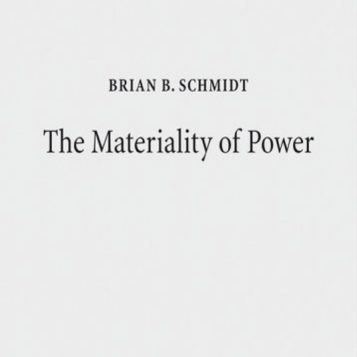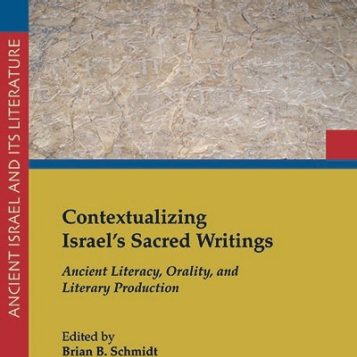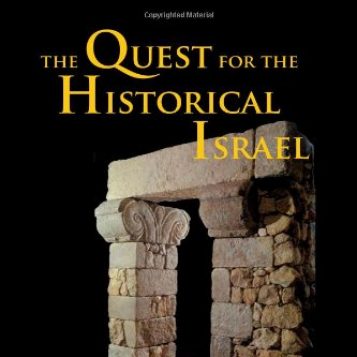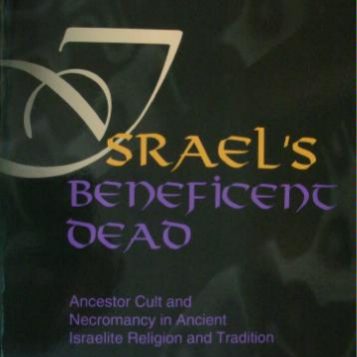Professor Emeritus of Hebrew Bible and Ancient Mediterranean West Asian Cultures
bschmidt@umich.edu
Education/Degree:
D.Phil., The University of Oxford, 1992Highlighted Work and Publications

The Materiality of Power: Explorations in the Social History of Ancient Israelite Magic
Brian Schmidt
The Materiality of Power explores five unique case studies in which architectural spaces, artifacts, icons, epigraphs and biblical manuscripts corroborate the unprecedented existence of a robust daimonic realm in late pre-exilic Israel along with a rudimentary pandemonium that foreshadow later demonological constructs. These material data preserve a countervailing world of apotropaism; a world over which YHWH and his Asherah, depicted in art and epigraph as the internationally renowned Egyptian protective deities Bes and Beset, served as co-presiders. The material...
See MoreKuntillet ‘Ajrud: Iron Age Inscriptions and Iconography
Brian Schmidt (volume guest editor and contributor)
The contributors include Israel Finkelstein (Tel Aviv), Herbert Niehr (Tübingen), Nadav Naaman (Tel Aviv), Brian Schmidt (Michigan), Brent Strawn and Joel Lemon (Emory).
This collection of groundbreaking essays is dedicated to the study of the northern Sinai site of Kuntillet Ajrud. It was borne in the throes of several recent events impacting the study of the site and its finds: the release of the Kuntillet Ajrud final report in 2012 following a forty-year hiatus and in response, several expert presentations at two successive society meetings...
See More
Contextualizing Israel’s Sacred Writings: Ancient Literacy, Orality, and Literary Production
Brian Schmidt (volume editor and contributor)
The contributors include James Bos (Ole Miss), David Carr (Columbia), André Lemaire (Sorbonne), Robert Miller (Catholic University), Nadav Na’aman (Tel Aviv), Raymond Person Jr. (Northern Ohio), Frank H. Polak (Tel Aviv), Christopher A. Rollston (George Washington), Seth Sanders (UC Davis), Joachim Schaper (Edinburgh), Brian Schmidt (Michigan), William Schniedewind (UCLA), Elsie Stern (Reconstructionist College) and Jessica Whisenant (Independent Scholar).
Situated historically between the invention of the alphabet, on the one hand, and the creation of ancient Israel...
See More
The Quest for the Historical Israel: Debating Archaeology and the History of Early Israel
Israel Finkelstein, Amihai Mazar (co-authors), Brian Schmidt (volume editor)
Three decades of dialogue, discussion, and debate within the interrelated disciplines of Syro-Palestinian archaeology, ancient Israelite history, and Hebrew Bible over the question of the relevance of the biblical account for reconstructing early Israel's history have created the need for a balanced articulation of the issues and their prospective resolutions. This book brings together for the first time and under one cover, a currently emerging centrist paradigm as articulated by two leading figures in the fields of early Israelite archaeology and history. Although Finkelstein and Mazar advocate...
See More
Israel's Beneficent Dead: Ancestor Cults and Necromancy in Ancient Israelite Religion and Tradition
Brian Schmidt
Brian examines a variety of factors that suggest that ancestor veneration or worship was not practiced in Levantine countries before Hellenistic times. Brian proposed instead that these rites assured heirs of their imminent succession and they also secured the predecessor's enduring legacy, even his immortality in the minds of the living, through their multi-generational acts of commemoration. In the course of his investigation, Brian provides a sustained analysis of the textual remains from ancient Syria-Palestine pertaining to these questions.
Brian B. Schmidt, Israel's Beneficent...
See More
